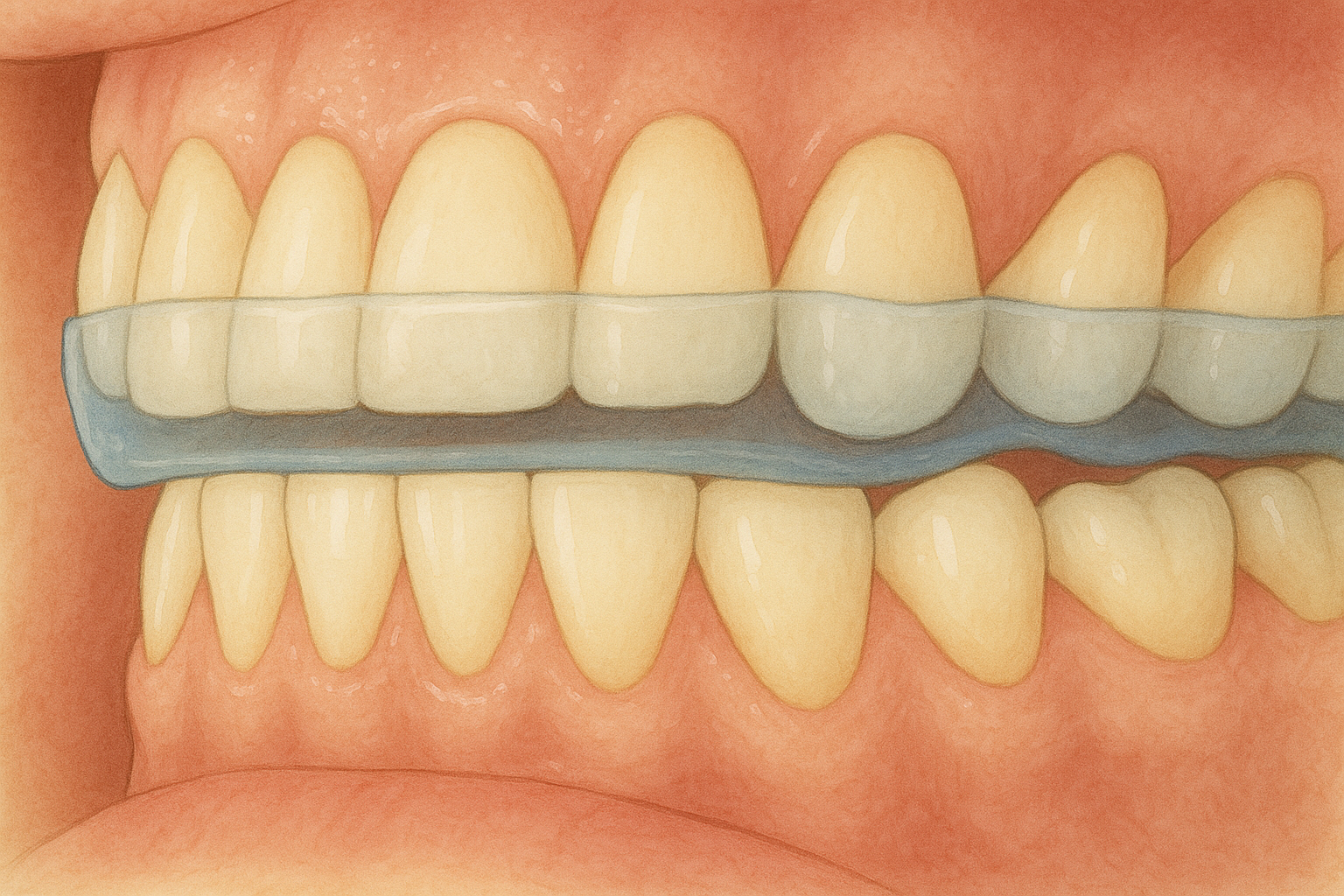Bruxism (Teeth Grinding)
Bruxism
What is Bruxism?
Bruxism is the habit of grinding or clenching your teeth, often during sleep or periods of stress. Many people are unaware they do it until their dentist notices signs of wear, or a partner hears the grinding at night.
Bruxism can affect both adults and children, and may be linked to stress, bite alignment or sleep patterns. Bruxism is closely related to Temporomandibular Joint Disorder (TMJD).
When to Seek Help?
If you wake up with jaw soreness, headaches, or notice your teeth becoming flatter or more sensitive, it’s time to get checked. Early treatment can prevent long-term damage.
Do mention this to us during your regular check-ups. We can help recommend if treatment is necessary. Mild cases often do not require treatment, and just need simple monitoring from your dentist.
What Damage Can It Cause?
Over time, heavy grinding can lead to:
Chipped, or cracked teeth which may require extensive treatment to resolve
Severe jaw pain and headaches
Jaw clicking
In severe cases, loosened teeth or teeth requiring extraction
Treatment Options
Night Splint
A custom-made night splint (mouthguard) is one of the most effective ways to protect your teeth and jaw. Worn during sleep, it prevents tooth wear and helps relax overactive jaw muscles. At Tanglin Dental, each splint is individually fitted for comfort and durability.
Braces
When teeth are misaligned or the bite is uneven, orthodontic treatment may help reduce grinding and muscle tension.
Botox Therapy
For patients with strong jaw muscles, small doses of Botox can relax the jaw muscles and reduce the force of grinding. This helps relieve jaw pain and also naturally slims the face. At Tanglin Dental, this treatment is done by our in-house medical aesthetic doctor.


